Humanity depends on agri-food systems for its survival and development. Agri-food systems constitute the institutions and people involved in getting food from farm to fork – from suppliers of inputs and services, to farmers themselves, to traders, processors, retailers and all others involved in putting food on peoples’ tables. Agri-food systems are increasingly multi-functional, often providing renewable sources of energy, ecosystem services, materials for construction, and many other resources that support human livelihoods. The evolution of agri-food systems are increasingly intertwined with energy, food, water and land policies.

The early career researcher will play an integral role in the project, through data collection, analysis, preparation of at least one peer-reviewed publication, and policy communication and networking activities. Through fieldwork, the researcher will also develop and enhance skills in social science data collection and analysis techniques including survey and semi-structured interviews. These fundamental skills will be complemented by innovative approaches to GIS analysis and database management, and spatial data visualization and communication techniques. This technical expertise will be married with the overarching mission of developing skills and experience in communicating for scholarly and policy impact through activities such as preparation of a peer-reviewed publication, developing an impactful policy brief, and participating in relevant workshops and policy fora. Finally, the researcher will be able to develop connections with project partners and collaborators from the UN Food and Agriculture Organization and World Fish, among others.
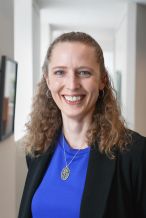 Should I be chosen as a mentor, the early career researcher who works with me would develop a specific WEF research question based on their region and topic of interest. We would then explore that question together using some of the systems analysis methods described above. Examples of questions might be: (1) How might we make food systems in Northern Nigeria more resilient in light of rapid urbanization and climate change? Or (2) What implications do changing cropping patterns and diets in Tanzania have for the country’s water use?. Once matched with a mentee, I will work closely with them to develop a research question that is scientifically interesting to both of us and of reasonable scope for a year-long project.
Should I be chosen as a mentor, the early career researcher who works with me would develop a specific WEF research question based on their region and topic of interest. We would then explore that question together using some of the systems analysis methods described above. Examples of questions might be: (1) How might we make food systems in Northern Nigeria more resilient in light of rapid urbanization and climate change? Or (2) What implications do changing cropping patterns and diets in Tanzania have for the country’s water use?. Once matched with a mentee, I will work closely with them to develop a research question that is scientifically interesting to both of us and of reasonable scope for a year-long project.
The year’s activities would begin with a background literature review and search for available ‘off the shelf’ modeling tools in the region/system of interest. I would then work with the mentee to conduct a systems analysis of the WEF nexus question in the region of their choosing using systems modeling methods such as causal loop diagramming, fuzzy cognitive mapping, and system dynamics modeling (the mentorship year would include training in these methods). My research group is currently using these methods to analyze the food system in Flint, Michigan, through a Foundation for Food and Agriculture Research grant. In addition, I am a member of the ARISEE platform convened by Dr. Sieg Snapp, and recently submitted a proposal to the NSF AccelNet program for a ‘network of networks’ focused on synthesizing information on the WEF nexus in Africa, working with Pennsylvania State University, the Stockholm Environment Institute, and the WEF nexus in Africa initiative (wefnexus.org). The mentee would therefore have copious access to both content-area expertise and methodological expertise to address their research question, through my networks. I anticipate at least 2 peer reviewed journal articles coming out of this work, and an external grant proposal, as well as materials targeted towards policy-makers in the mentee’s region of interest. Moreover, this mentorship year could form the basis for an ongoing research consortium around systems modeling of the WEF nexus in Africa, catalyzing activities across the networks described above.
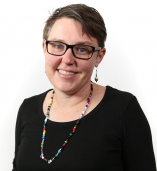 Agriculture has long been the dominant economic activity for people (especially women) in rural parts of Africa. Food production (digging, planting seeds, harvesting, etc.) is arduous, and time-consuming. Efforts to develop technologies that assist farmers with this work have primarily focused on mechanization; that is, promoting animal traction (e.g., using ox) and/or tractors to assist farmers. However, most African farmers continue to use hand tools(e.g., the jembe). These are ancient technologies, and other than replacing wood or stone with iron blades, their designs have remained unchanged.New tools for farmers exist(Figure1). These redesigned tools are the outcome of my AAP-funded project(Wyche, Olson, and Karanu, 2019). The goals of my research project are to assess the new tools’ health impacts and to determine the equilibrium point between affordability for the farmers and profitability for the jua kali(small-scale fabricators).This project will contribute knowledge to this AAP priority area: Agri-foods Systems. More broadly, thisproject has practical benefits, including the development of new tools that reduce the drudgery associated with weeding and the possibility of a new livelihood strategy for jua kali (i.e., manufacturing and selling these redesigned tools). The scholar develop a research plan, including research instruments (i.e., interview protocols and surveys)•Conduct a pilot test with these instruments with famers and jua kali in Kenya•Prepare a proposal to submit to USAID’s Development Innovation Ventures (DIV)Program
Agriculture has long been the dominant economic activity for people (especially women) in rural parts of Africa. Food production (digging, planting seeds, harvesting, etc.) is arduous, and time-consuming. Efforts to develop technologies that assist farmers with this work have primarily focused on mechanization; that is, promoting animal traction (e.g., using ox) and/or tractors to assist farmers. However, most African farmers continue to use hand tools(e.g., the jembe). These are ancient technologies, and other than replacing wood or stone with iron blades, their designs have remained unchanged.New tools for farmers exist(Figure1). These redesigned tools are the outcome of my AAP-funded project(Wyche, Olson, and Karanu, 2019). The goals of my research project are to assess the new tools’ health impacts and to determine the equilibrium point between affordability for the farmers and profitability for the jua kali(small-scale fabricators).This project will contribute knowledge to this AAP priority area: Agri-foods Systems. More broadly, thisproject has practical benefits, including the development of new tools that reduce the drudgery associated with weeding and the possibility of a new livelihood strategy for jua kali (i.e., manufacturing and selling these redesigned tools). The scholar develop a research plan, including research instruments (i.e., interview protocols and surveys)•Conduct a pilot test with these instruments with famers and jua kali in Kenya•Prepare a proposal to submit to USAID’s Development Innovation Ventures (DIV)Program
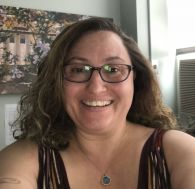 This research opportunity is a multi-step project seeking to incorporate practitioner knowledge into actions around resource use and mitigation/adaptation to environmental change.Work will be conducted in Dr. Libarkin’s Geocognition Research Lab(GRL). Step 1.In the first step, a systematic literature review will evaluate the place of practitioner ecological knowledge in development of practice and policy for land use. Step 2.This component of the research constitutes a cases study undertaken in collaboration with Dr. S. Snapp (MSU Plant, Soil and Microbial Sciences). Dr. Snapp’s lab utilizes LandPKS, a mobile app for rapid soil/vegetation characterization,in work with farmers in Malawi and Tanzania. This is a unique opportunity to contribute to a multidisciplinary research team and develop tools that directly support smallholder farmers.Interviews will consider how farmers acquire, use, and share information with each other. Depending on the scholar’s interests, this might include a community network analysis(Wood et al., 2014)and other approaches to consider how different stakeholders (farmers, scientists, extension agents) are connected via information sharing.Step 3.The systematic review of Step 1 and the analysis of Step 2 will be combined to develop practical recommendations for incorporating practitioner knowledge into research, outreach, education, and extension activities.We anticipate the potential for one publication emerging from each step of the research opportunity(three total).The proposed work would benefit from a collaboration with a scholar who conducts network analysis, communication, indigenous studies, participatory development, community engaged scholarship and/or sustainability studies.
This research opportunity is a multi-step project seeking to incorporate practitioner knowledge into actions around resource use and mitigation/adaptation to environmental change.Work will be conducted in Dr. Libarkin’s Geocognition Research Lab(GRL). Step 1.In the first step, a systematic literature review will evaluate the place of practitioner ecological knowledge in development of practice and policy for land use. Step 2.This component of the research constitutes a cases study undertaken in collaboration with Dr. S. Snapp (MSU Plant, Soil and Microbial Sciences). Dr. Snapp’s lab utilizes LandPKS, a mobile app for rapid soil/vegetation characterization,in work with farmers in Malawi and Tanzania. This is a unique opportunity to contribute to a multidisciplinary research team and develop tools that directly support smallholder farmers.Interviews will consider how farmers acquire, use, and share information with each other. Depending on the scholar’s interests, this might include a community network analysis(Wood et al., 2014)and other approaches to consider how different stakeholders (farmers, scientists, extension agents) are connected via information sharing.Step 3.The systematic review of Step 1 and the analysis of Step 2 will be combined to develop practical recommendations for incorporating practitioner knowledge into research, outreach, education, and extension activities.We anticipate the potential for one publication emerging from each step of the research opportunity(three total).The proposed work would benefit from a collaboration with a scholar who conducts network analysis, communication, indigenous studies, participatory development, community engaged scholarship and/or sustainability studies.
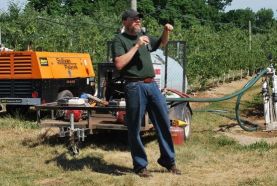 My AAP scholar project will meet the Agri-Food Systems priority by providing hands on training on the development of Integrated Pest Management (IPM) monitoring and or cultural control tactics and the development of proposals and research/extension projects to be carried out in the scholar’s home country. While at MSU the scholar will collaborate on ongoing research developing monitoring programs for Spotted Wing Drosophila (Drosophila suzukii) (SWD) a serious pest of temperate small fruit in Asia, the Americas, Europe and Africa. SWD will provide an excellent model system for the AAP scholar, because we can develop research under both field and laboratory environments and it has a similar life history to numerous fruit flies that attack tropical fruits and vegetables (Bactroceraspp. flies).
My AAP scholar project will meet the Agri-Food Systems priority by providing hands on training on the development of Integrated Pest Management (IPM) monitoring and or cultural control tactics and the development of proposals and research/extension projects to be carried out in the scholar’s home country. While at MSU the scholar will collaborate on ongoing research developing monitoring programs for Spotted Wing Drosophila (Drosophila suzukii) (SWD) a serious pest of temperate small fruit in Asia, the Americas, Europe and Africa. SWD will provide an excellent model system for the AAP scholar, because we can develop research under both field and laboratory environments and it has a similar life history to numerous fruit flies that attack tropical fruits and vegetables (Bactroceraspp. flies).
Research on the development of monitoring systems will involve laboratory evaluation of prototype insect traps as well as baits based on yeast volatiles and fruit wastes. A unique aspect of this research is that we are targeting the insect during the Fall, Winter and Spring with the goal of providing growers with a means of predicting when during the growing season SWD is likely to begin damaging crops. This is very meaningful research because growers in Michigan are beginning management programs “blind”, leading to either pest outbreaks or the over application of insecticides. As part of this research we will evaluate novel trap designs made from readily available materials and baited with yeast/sugar mixtures and or rotting fruit wastes using both laboratory and field approaches
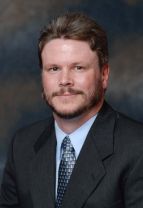 This research conceivably could be conducted in several countries that have received considerable recent investments in trade capacity development on food safety or other SPS issues. The research plan would be based on key informant interviews in a selected country to identify historical and current food safety/SPS investments and to systematically identify evidence for positive and/or negative spillover effects on domestic food safety. This research will help inform future donor investment strategies to improve food safety/SPS capacity in a manner that simultaneously maximizes domestic benefits.
This research conceivably could be conducted in several countries that have received considerable recent investments in trade capacity development on food safety or other SPS issues. The research plan would be based on key informant interviews in a selected country to identify historical and current food safety/SPS investments and to systematically identify evidence for positive and/or negative spillover effects on domestic food safety. This research will help inform future donor investment strategies to improve food safety/SPS capacity in a manner that simultaneously maximizes domestic benefits.
This work will specifically address the AAP agrifood systems thematic area. In partnership with the MSU faculty mentor, the identified African scholar would identify the geography and value chain focus of the proposed research, develop the research approach (which would focus on survey research methods including key informant interviews), summarize the research findings, and write one or manuscripts for publication. Ideally, this research project would support development of a research proposal to one or more donor organizations to further test hypotheses concerning conditions which are optimal for promoting positive spillover effects on domestic food safety outcomes.
The resources of water, energy and the environment are interdependent and require integrated approaches to research and implementation that recognize the cross-sectoral nature of both challenges and solutions. Achieving sustainability and wise use of these globally essential resources requires an understanding of the synergies among them as well as the trade-offs among competing demands.
 The proposed work aims at increasing cost-efficiency of thermal desalination systems through the development of new low-cost alloys with superior resistance to corrosion and higher working temperatures (up to 150°C). The proposed low-cost alloys include TiMn-Zr alloys with high strength and high entropy alloys (HEAs), based on the FeNiCrMnSi system, with good cold workability. We will rely on common elements such as manganese (Mn), nickel (Ni), iron (Fe), and silicon (Si) as raw materials in the alloy design. The ease of processing; i.e. using cold working for the beta-type Ti alloys and face centered cubic (FCC) HEAs will also help reduce costs. Each of the alloys to be studied will have higher strength than the commonly used commercially-pure Ti, which should give lower tube thicknesses and lower the costs further.
The proposed work aims at increasing cost-efficiency of thermal desalination systems through the development of new low-cost alloys with superior resistance to corrosion and higher working temperatures (up to 150°C). The proposed low-cost alloys include TiMn-Zr alloys with high strength and high entropy alloys (HEAs), based on the FeNiCrMnSi system, with good cold workability. We will rely on common elements such as manganese (Mn), nickel (Ni), iron (Fe), and silicon (Si) as raw materials in the alloy design. The ease of processing; i.e. using cold working for the beta-type Ti alloys and face centered cubic (FCC) HEAs will also help reduce costs. Each of the alloys to be studied will have higher strength than the commonly used commercially-pure Ti, which should give lower tube thicknesses and lower the costs further.
Potential benefits of inexpensive, corrosion-resistant materials extend beyond thermally-driven separations and can have significant broader impact on other desalination technologies. We believe that the research program outlined in this proposal is a value-added project that can strengthen the economic sustainability of the water industry in both USA and Egypt by providing superior protection to key components of seawater desalination infrastructure.
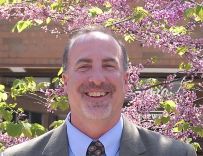 The planned fundamental research will advance knowledge about these new carbon electrodes regarding the structure of electrified interfaces and heterogeneous electron-transfer kinetics for soluble and surface-confined redox systems in aqueous and organic electrolytes. Understanding material property-electrochemical behavior relationships is critical for developing new electroanalytical applications for ta-C and ta-C:N thin-film electrodes that benefit the environment and human health. The effort will produce new insights on how the material properties, diffusion and electrochemical reaction rate impact the electrode performance. Heterogeneous electron-transfer rate constants and activation energies for electron-transfer for various redox probe molecules will be determined in different aqueous and organic solvent/electrolyte systems. All work represents new science that will favorably impact the field of electroanalytical chemistry.
The planned fundamental research will advance knowledge about these new carbon electrodes regarding the structure of electrified interfaces and heterogeneous electron-transfer kinetics for soluble and surface-confined redox systems in aqueous and organic electrolytes. Understanding material property-electrochemical behavior relationships is critical for developing new electroanalytical applications for ta-C and ta-C:N thin-film electrodes that benefit the environment and human health. The effort will produce new insights on how the material properties, diffusion and electrochemical reaction rate impact the electrode performance. Heterogeneous electron-transfer rate constants and activation energies for electron-transfer for various redox probe molecules will be determined in different aqueous and organic solvent/electrolyte systems. All work represents new science that will favorably impact the field of electroanalytical chemistry.
The AAP Fellow will develop improved critical thinking and communication skills and learn about productive teamwork in a laboratory setting. Planned professional development activities will give the Fellow confidence and make them more competitive for employment. The AAP Fellow will experience the benefits of positive mentoring and understand how proper mentor-mentee relationships should exist. The Fellow will be educated on laboratory safety and proper chemical hygiene practices. Finally, the Fellow will work with the PI to develop lectures and exams and to deliver lectures in an undergraduate course on Instrumental Methods of Analysis(SS2021, NEU 417).
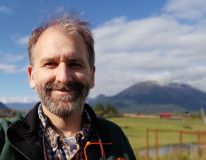 This project addresses the focus area of Water, Energy, and Environment. The primary focus of the project is the characterization of a magmatic (volcanic) system whose selection is led by the mentee and host collaborator. Volcanic systems can control all three of these variables – the chemical composition of surface (e.g. sodic lakes) and groundwater (fluorine concentration) is can be controlled by volcanic systems. Moreover, these systems are currently being exploited for energy in Ethiopia and Kenya. Volcanic systems on the African continent are profoundly underexplored – the fundamental research proposed here could have potential to be utilized more practically in these areas.
This project addresses the focus area of Water, Energy, and Environment. The primary focus of the project is the characterization of a magmatic (volcanic) system whose selection is led by the mentee and host collaborator. Volcanic systems can control all three of these variables – the chemical composition of surface (e.g. sodic lakes) and groundwater (fluorine concentration) is can be controlled by volcanic systems. Moreover, these systems are currently being exploited for energy in Ethiopia and Kenya. Volcanic systems on the African continent are profoundly underexplored – the fundamental research proposed here could have potential to be utilized more practically in these areas.
The mentee will work with Prof. Rooney and host collaborator to construct a US National Science Foundation grant proposal. This proposal will utilize the data generated by the mentee and expand the scope to a multi-year project. As part of this process, the mentee will be involved in all stages of grant preparation from conceptual frameworks, logistical planning, and budgets. They will also be expected to take the lead authorship on at least one manuscript to be submitted during their time in the program. This manuscript will be written in conjunction with input from Prof. Rooney and the host collaborator. The manuscript will be submitted to a top-tier international journal. Mentee will be provided guidance on manuscript construction, argument construction, and data presentation.
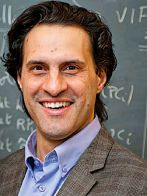 The project’s main analytical tool is computational Bayesian statistics, a form of supervised machine learning which has its roots in the 18th century, and has taken off in the last 20 years thanks to improvements in computing. Any scientific scholar with mathematical training at the level of an undergraduate degree, and with some programming experience, will be capable of mastering the basic data science tools. This includes classical linear Bayesian hierarchical modeling, and its numerical implementation using the so-called Gibbs sampler and other Markov-Chain Monte-Carlo techniques.
The project’s main analytical tool is computational Bayesian statistics, a form of supervised machine learning which has its roots in the 18th century, and has taken off in the last 20 years thanks to improvements in computing. Any scientific scholar with mathematical training at the level of an undergraduate degree, and with some programming experience, will be capable of mastering the basic data science tools. This includes classical linear Bayesian hierarchical modeling, and its numerical implementation using the so-called Gibbs sampler and other Markov-Chain Monte-Carlo techniques.
The Bayesian paradigm leaves open a number of theoretical questions, about statistical uncertainty quantification, which are relevant to Viens’s Lake Chad project, and which would satisfy the desires of a mathematical scientist to dig deep into theory, if that is a desired direction for the Scholar. The African Futures Scholar will also have an opportunity to engage in a highly original project on analyzing primary-source historical data to reconstruct the last thousand years of Lake Chad’s climate. Another possibility for the Scholar lies in an environmental study of the globally significant Hadejia Nguru wetlands, which lie in the Lake Chad Basin, to understand how human activities affect this delicate ecosystem; this would be in collaboration with scholars from a Nigerian forestry institute.
Beyond the computational data analysis and coordination work summarized above, the early-career researcher will also help Viens with writing publications as a lead- or co-author, composing grant applications, and will have opportunities to participate in other Africa-centric data-science activities.
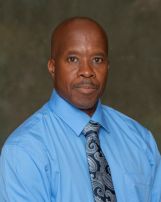 The proposed research focuses on the validation of physics models used to treat nuclear reactions involving rare isotopes at NSCL/FRIB and that are implemented in the Geant4 Monte Carlo simulation toolkit (www.geant4.org).The results from this research willbe presented at conferences,and published in at least one article in a peer-reviewed journal.The candidate is also expected to spend a significant fraction of the time at UCAD to implement the experimental activities associated with the proposed work and possibly supervise one or more students.
The proposed research focuses on the validation of physics models used to treat nuclear reactions involving rare isotopes at NSCL/FRIB and that are implemented in the Geant4 Monte Carlo simulation toolkit (www.geant4.org).The results from this research willbe presented at conferences,and published in at least one article in a peer-reviewed journal.The candidate is also expected to spend a significant fraction of the time at UCAD to implement the experimental activities associated with the proposed work and possibly supervise one or more students.
The proposed work will consist of:
-Development and validation of a Geant4-based code for low energy nuclear physics. This work is to primarily provide a benchmark for coding purpose and allow the training of students locally in the use of the Geant4 Monte Carlo toolkit using low activity sources (beta, gamma and alpha) and the Rutherford scattering experiment.
-Development of a Geant4 validation suite specifically tailored to neutron rich nuclei. The corresponding hadronic physics in the current version of Geant4 (10.5) includes amongst others various models for elastic and inelastic reactions, fragmentation, fusion and fission, break-up, abrasion-ablation and electromagnetic dissociation.
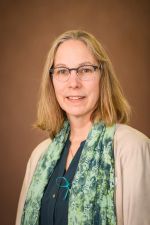 Gender, Justice and Environmental Change (GJEC) is a graduate specialization at Michigan State University that focuses on the intersection of gender, environmental change, and social and environmental justice. The GJEC program is designed to examine these issues and processes from multiple perspectives including local and global ones in order to think critically about social relations underlying environmental problems;politics of international, national or local environmental issues;environmental justice movements;use and management of agricultural and natural resources;and feminist environmental activism. The GJEC program is flexible and cross-disciplinary in design and challenges those in the natural science fields to integrate gender and justice concerns into their research. It challenges social scientists to gain expertise in the concepts, and methods of gender theory and environmental studies for community sustainability.
Gender, Justice and Environmental Change (GJEC) is a graduate specialization at Michigan State University that focuses on the intersection of gender, environmental change, and social and environmental justice. The GJEC program is designed to examine these issues and processes from multiple perspectives including local and global ones in order to think critically about social relations underlying environmental problems;politics of international, national or local environmental issues;environmental justice movements;use and management of agricultural and natural resources;and feminist environmental activism. The GJEC program is flexible and cross-disciplinary in design and challenges those in the natural science fields to integrate gender and justice concerns into their research. It challenges social scientists to gain expertise in the concepts, and methods of gender theory and environmental studies for community sustainability.
I am inviting an early career researcher to join me in the Department of Community Sustainability to develop expertise at the intersection of gender, justice and environmental change that can be applied to their current research interests in water, energy or environment. During the year, they will have the opportunity to meet with community sustainability scholars to discuss their case study as well as to engage in targeted research using qualitative or mixed methods for data collection. We will prepare a conference presentation for the African Studies Association Annual Conference and present it in Washington, DC in November 2020 on Gender, Justice and Environmental Change For and From an African Context. (And if not this, then one in the spring or summer of 2021.)
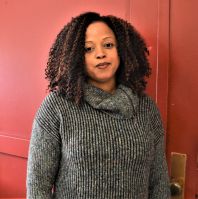 Our research on understanding water quality impacts on human health through risk assessment will contribute directly to this project. The PI has established contacts with researchers at the University of Nigeria, Nsukka –Nigeria and University of Pretoria - South Africa, who have local data sets and ongoing microbial sampling projects for waterborne pathogens in surface waters used for drinking and irrigation. The study will utilize data collected through culture based methods and molecular tools to detect, quantify and document the source of water pollution in local water sources. Pathogens of interests will include, E. Coli., Vibrio cholerae, Rotavirus, Adenovirus and Norovirus. Collected microbial water quality data will be used for risk assessment to estimate health impacts associated with contamination sources through multiple relevant exposure pathways including recreation, irrigation and drinking water. Additional sampling may be conducted to fill data gaps as well. We have experience in using advanced monitoring tools and building mathematical fate and transport models for environmental contaminants.
Our research on understanding water quality impacts on human health through risk assessment will contribute directly to this project. The PI has established contacts with researchers at the University of Nigeria, Nsukka –Nigeria and University of Pretoria - South Africa, who have local data sets and ongoing microbial sampling projects for waterborne pathogens in surface waters used for drinking and irrigation. The study will utilize data collected through culture based methods and molecular tools to detect, quantify and document the source of water pollution in local water sources. Pathogens of interests will include, E. Coli., Vibrio cholerae, Rotavirus, Adenovirus and Norovirus. Collected microbial water quality data will be used for risk assessment to estimate health impacts associated with contamination sources through multiple relevant exposure pathways including recreation, irrigation and drinking water. Additional sampling may be conducted to fill data gaps as well. We have experience in using advanced monitoring tools and building mathematical fate and transport models for environmental contaminants.
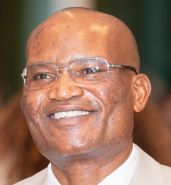 The mentee is having the opportunity to participate in research activities planned for the latter part of year 1 and the first half of year 2 – literature review, analysis of initial data to be collected this summer from focus groups and key informants on decision-making processes and willingness to invest ins sustainable wood and bamboo production, and has the opportunity to participate in data collection second summer on choice for land use allocation and wood/woodfuel value chains. The mentee will also co-author the first publication manuscript form the first part of data collection and have the opportunity to present results on MSU and home campus, one nationally in the US and possibly one in Malawi. Additionally, the fellow will have the career developmental teaching opportunity to give guest lectures in my undergraduate classes and to help facilitate and participate in selected sessions of my people/environmental geography graduate seminar. Mentoring will be based on a structured mentoring program as requires in my department, co-developed with the mentee and the home institution mentor. The mentee will also have the optional opportunity to start developing or co-develop a project proposal concept to advance their grant writing and potential to seek funding for research. The priority AAP research area is water, energy and environment.
The mentee is having the opportunity to participate in research activities planned for the latter part of year 1 and the first half of year 2 – literature review, analysis of initial data to be collected this summer from focus groups and key informants on decision-making processes and willingness to invest ins sustainable wood and bamboo production, and has the opportunity to participate in data collection second summer on choice for land use allocation and wood/woodfuel value chains. The mentee will also co-author the first publication manuscript form the first part of data collection and have the opportunity to present results on MSU and home campus, one nationally in the US and possibly one in Malawi. Additionally, the fellow will have the career developmental teaching opportunity to give guest lectures in my undergraduate classes and to help facilitate and participate in selected sessions of my people/environmental geography graduate seminar. Mentoring will be based on a structured mentoring program as requires in my department, co-developed with the mentee and the home institution mentor. The mentee will also have the optional opportunity to start developing or co-develop a project proposal concept to advance their grant writing and potential to seek funding for research. The priority AAP research area is water, energy and environment.
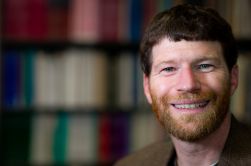 I propose that the research mentee would assist in working with me as lead faculty mentor, to develop research program at MSU that would address the nexus between climate change, conflict, gender, and migration. We would expect that issues such as human health and gender would be critical focuses within research on the nexus. The scholar would be invited to join a team of scholars working on developing this new area of convergence research. This proposed work group aims to take up the call of scholars to investigate the relationship between climate change and the emergence, existence, elongation, and impacts of conflicts (e.g. Scheffran, et al. 201256; Gemenne, et al. 2014). Our aim is to use this interdisciplinary forum to identify key interactions between climate change and conflict – developing new areas of investigation that move beyond current impasses in the literature. This workgroup will draw upon the considerable global scholarly expertise at MSU, to investigate the interactions between climate change and conflict. The scholarship to date makes clear that the interactions between these two phenomena are neither straightforward, nor predictable. Rather, they are coupled and interactive. Therefore, this workgroup seeks to dive deeper into these two phenomena as coupled, complex nested systems. Decades of research have demonstrated that natural resources scarcity, even of a critical resource such as water, has not generally led to armed conflict between nations (Wolf 2009)7.
I propose that the research mentee would assist in working with me as lead faculty mentor, to develop research program at MSU that would address the nexus between climate change, conflict, gender, and migration. We would expect that issues such as human health and gender would be critical focuses within research on the nexus. The scholar would be invited to join a team of scholars working on developing this new area of convergence research. This proposed work group aims to take up the call of scholars to investigate the relationship between climate change and the emergence, existence, elongation, and impacts of conflicts (e.g. Scheffran, et al. 201256; Gemenne, et al. 2014). Our aim is to use this interdisciplinary forum to identify key interactions between climate change and conflict – developing new areas of investigation that move beyond current impasses in the literature. This workgroup will draw upon the considerable global scholarly expertise at MSU, to investigate the interactions between climate change and conflict. The scholarship to date makes clear that the interactions between these two phenomena are neither straightforward, nor predictable. Rather, they are coupled and interactive. Therefore, this workgroup seeks to dive deeper into these two phenomena as coupled, complex nested systems. Decades of research have demonstrated that natural resources scarcity, even of a critical resource such as water, has not generally led to armed conflict between nations (Wolf 2009)7.
Young people in Africa face economic and social and challenges including equitable access to economic and educational opportunities. At the same time, youth seek more equal opportunities to engage in civic, economic, social and political participation. Research and programming for youth empowerment addresses these and other aspects of youth livelihoods through research and action that is led by, and inclusive of, young people themselves. Through youth empowerment initiatives young people will be included in effective and democratic leadership; build economic and social resiliency; and participate in policy reforms that will address their own future development.
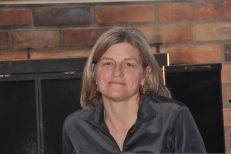 This post-doctoral position with Afrobarometer will offer the researcher the opportunity to work with the extensive Afrobarometer data set with the key goals of producing and publishing several analyses, either alone, or in collaboration with other members of the AB network and the MSU/AB team. The position is highly flexible and will be adapted to accommodate the interests, needs and goals of the researcher with regard to both research topics, as well as the level of analysis and types of publications and outputs to be produced. AB and MSU/Political Science Department can also offer a number of special research and learning opportunities to the researcher as described below.
This post-doctoral position with Afrobarometer will offer the researcher the opportunity to work with the extensive Afrobarometer data set with the key goals of producing and publishing several analyses, either alone, or in collaboration with other members of the AB network and the MSU/AB team. The position is highly flexible and will be adapted to accommodate the interests, needs and goals of the researcher with regard to both research topics, as well as the level of analysis and types of publications and outputs to be produced. AB and MSU/Political Science Department can also offer a number of special research and learning opportunities to the researcher as described below.
We will launch this post-doctoral position with an initial discussion of the researcher’s skills and experience in working specifically with public opinion data. Both Dr. Logan and other members of the network can provide support to build the researcher’s skills and experience in this area as needed. We will also introduce the researcher to the full scope of the AB data available, with a special focus on the topics of special interest to the researcher. We will then jointly develop a workplan that establishes research and publication goals for the year. The researcher can choose to maintain a primarily academic focus in their work if preferred, but they will also have the opportunity, if desired, to work with the AB communications team to produce press releases, blog posts, tweets and other outputs related to sharing and publicizing their work.
Education is at the core of human learning and development. Societies and individuals learn through education at all levels to develop critical thinking and make responsible decisions that affect lives and livelihoods. Education includes all processes of human learning and development including policy and implementation so that the contexts for learning and teaching are sustainable and equitable.
 The African Futures Scholar will be engaged in a community-based intervention research project with my research team which is composed of multidisciplinary researchers, postdoctoral fellows and graduate students. This project aims to culturally adapt a dual work-related social skills and employment readiness training program (ASSET-EPASS) which was originally developed in the United States for transition-age individuals with intellectual and developmental disabilities (IDD).
The African Futures Scholar will be engaged in a community-based intervention research project with my research team which is composed of multidisciplinary researchers, postdoctoral fellows and graduate students. This project aims to culturally adapt a dual work-related social skills and employment readiness training program (ASSET-EPASS) which was originally developed in the United States for transition-age individuals with intellectual and developmental disabilities (IDD).
In this particular project, the African Futures Scholar will be involved in a series of research activities. For instance, he/she will be conducting focus groups and interviews to solicit input and feedback from stakeholders (e.g., practitioners, researchers, caregivers) for adopting the curriculum in the African context. When deem appropriate and necessary, the content of the curriculum will be modified and adapted based on the input and feedback received from stakeholders. Afterwards, a feasibility study, including a small-scale RCT, will be conducted to examine the applicability, practicality and acceptability of the ASSET-EPASS intervention program. Throughout the project, I will work closely with the African Futures Scholar as well as the co-mentor at an African institution to develop research materials for the project (e.g., focus group/ interview protocols, curriculum review forms, pre-post intervention surveys, data management system, etc), conducting qualitative and quantitative analyses, writing manuscripts based on the feasibility study, and writing grant proposals to further support future work. Specific work activities that the African Futures Scholar will be expected to perform, including: engaging in lab meetings, developing research materials, conducting focus group/interviews, collecting and analyzing qualitative and quantitative data, contributing to manuscript and grant proposal writing, supervising graduate students, etc. The work will be performed together with a team of researchers, postdoctoral fellows and graduate students.
Cultural heritage and cultural activities are essential resources for society and for human development. In the face of global challenges, cultural values and practices provide opportunities for creative innovation and make a connection with the experiences and wisdom of past generations. Creative cultural practices allow societies and individuals to foster human dignity, well-being and sustainability. Through culture communities can creatively identify and explore new approaches and frameworks in, for example: conflict-resolution and peace-building activities; youth empowerment; inter-generational dialogue; and human-environment sustainability.
 There is a pressing need to advance historical information about diverse African sociopolitical experiences, which includes information on African descendants worldwide. Pop culture, language and religious traditions, among others, continue to be globally impacted by the forced and voluntary dispersal of people from various parts of the African continent around the world. One fundamental aspect of this narrative is how Africans have survived and continue to survive, sometimes in spaces that have been and continue to be hostile to them. While civil rights and armed struggle are typically recognized as methods used by Africans in the diaspora to fight for freedom, the significance of religion and spirituality in freedom struggles are not often acknowledged. However,African-based religious,spiritual and philosophical practices like vodun, Rastafarianism, Obeah, Candomblé and black Christian traditions in the Americas,have and still play important roles in self-determination, identity redefinitions, cultural celebrations and resistance. But even more overlooked are the powerful implications of performance (roleplaying, song, dance, music, possession)within these practices, not just in preserving inherent belief systems, but in defying and rejecting subjugation. Research into the significance of African-based religions in the diaspora would thus provide channels through which to have a greater understanding of and insight into specific African diasporic communities, especially since these communities continue to be economically, culturally and artistically significant worldwide. Ultimately, this study would not just be about religion, spirituality and philosophy(which cannot be studied in isolation). It would also explore the histories, lifestyles, art forms, theatrical forms and folk traditions of these communities, thus providing greater understanding of the transformation, progression, complexity and overall existence of Africans in the diaspora, as well as their continued impact locally and globally.
There is a pressing need to advance historical information about diverse African sociopolitical experiences, which includes information on African descendants worldwide. Pop culture, language and religious traditions, among others, continue to be globally impacted by the forced and voluntary dispersal of people from various parts of the African continent around the world. One fundamental aspect of this narrative is how Africans have survived and continue to survive, sometimes in spaces that have been and continue to be hostile to them. While civil rights and armed struggle are typically recognized as methods used by Africans in the diaspora to fight for freedom, the significance of religion and spirituality in freedom struggles are not often acknowledged. However,African-based religious,spiritual and philosophical practices like vodun, Rastafarianism, Obeah, Candomblé and black Christian traditions in the Americas,have and still play important roles in self-determination, identity redefinitions, cultural celebrations and resistance. But even more overlooked are the powerful implications of performance (roleplaying, song, dance, music, possession)within these practices, not just in preserving inherent belief systems, but in defying and rejecting subjugation. Research into the significance of African-based religions in the diaspora would thus provide channels through which to have a greater understanding of and insight into specific African diasporic communities, especially since these communities continue to be economically, culturally and artistically significant worldwide. Ultimately, this study would not just be about religion, spirituality and philosophy(which cannot be studied in isolation). It would also explore the histories, lifestyles, art forms, theatrical forms and folk traditions of these communities, thus providing greater understanding of the transformation, progression, complexity and overall existence of Africans in the diaspora, as well as their continued impact locally and globally.
Focusing on the above subject, the early career researcher will be expected to start exploring specific Africa-influenced religions, particularly in the Caribbean. Based on their findings, which would include the historical significance of the religions, the continued dedication of adherents and the extent to which the religions have shaped performance and freedom struggles, the researcher will help narrow down and determine what the research should aim for in terms of location and religious emphasis.
Nutrition is key to human well-being. Poor nutrition can lead to negative health outcomes that are widespread, and therefor to persistent development challenges. These range from under-nutrition due to deficiencies in energy, protein, and micronutrients (and high rates of infections) to problems of overweight, obesity, and non-communicable diseases, which result from poor quality, energy-dense and micronutrient-poor diets and low physical activity. Research in this area addresses all forms of malnutrition and the overall goal is to generate a rich body of evidence on what works to improve nutrition and health – and what does not – and how nutrition-sensitive and nutrition-specific interventions, programs and policies can be better designed and implemented to maximize impacts. Nutrition researchers often work in partnership with program implementers and policymakers to foster collaboration and integration across the health, agriculture, social protection, education, water, and sanitation sectors.

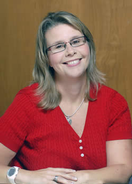 The AAP priority that will be addressed in this research project is nutrition and health. The objectives of this proposal is to identify key nutritional deficiencies that deleteriously impact immune function in African children.Upon arrival in my laboratory, the researcher will work with me on a daily basis to learn basic immunology and how nutrition impacts immunity and infection. Upon completion of the immunology tutorial, the early stage researcher will then do extensive research to identify key nutrients that are deficient in young African children and whether identified nutrients are expected to impact immune function. Based on her research, we will select the nutrients of interest for the project.It is expected that this portion of the project will take up to three months. During this time, I envision that she and I will write a review article that summarizes research on the impact nutritional deficiencies on immunity in young African children.
The AAP priority that will be addressed in this research project is nutrition and health. The objectives of this proposal is to identify key nutritional deficiencies that deleteriously impact immune function in African children.Upon arrival in my laboratory, the researcher will work with me on a daily basis to learn basic immunology and how nutrition impacts immunity and infection. Upon completion of the immunology tutorial, the early stage researcher will then do extensive research to identify key nutrients that are deficient in young African children and whether identified nutrients are expected to impact immune function. Based on her research, we will select the nutrients of interest for the project.It is expected that this portion of the project will take up to three months. During this time, I envision that she and I will write a review article that summarizes research on the impact nutritional deficiencies on immunity in young African children.
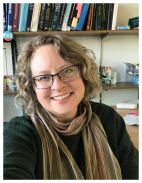 In spite of decades of biomedical research,we lack a fundamental understanding of why and how most diseases vary in prevalence and impact between females/males and between individuals at different life stages. For instance,why is arthritis more common in females than males when they reach about 40 years of age? Why is autism five times more common in boys than girls? Age and, especially, sex have been largely ignored in basic/preclinical studies and in translating findings to clinical research and medical interventions. To uniformly address questions about female/male tissue biology across all age intervals(e.g.,childhood,adolescence,or old age),we need to reanalyze hundreds of thousands of human genomic profiles that are already available, in addition to analyzing rapidly-accumulating new data on sex-specific and aging associated data. Our research group at MSU develops computational approaches that can integrate massive collections of genetic and molecular data to build predictive models about the roles genes might play in various complex diseases. As part of the AAP African Futures Research Leadership Program, the visiting researcher will work with mentors Dr. Arjun Krishnan and Dr. Amy Ralston to participate in our ongoing project on developing new data-driven computational methods to delineate the genomic basis of differences in tissue physiology and disease between sexes and across ages. This research project falls under the“Health&Nutrition”AAP priority area and,in the long term,the findings from this work will be crucial for advancing disease diagnosis and intervention.
In spite of decades of biomedical research,we lack a fundamental understanding of why and how most diseases vary in prevalence and impact between females/males and between individuals at different life stages. For instance,why is arthritis more common in females than males when they reach about 40 years of age? Why is autism five times more common in boys than girls? Age and, especially, sex have been largely ignored in basic/preclinical studies and in translating findings to clinical research and medical interventions. To uniformly address questions about female/male tissue biology across all age intervals(e.g.,childhood,adolescence,or old age),we need to reanalyze hundreds of thousands of human genomic profiles that are already available, in addition to analyzing rapidly-accumulating new data on sex-specific and aging associated data. Our research group at MSU develops computational approaches that can integrate massive collections of genetic and molecular data to build predictive models about the roles genes might play in various complex diseases. As part of the AAP African Futures Research Leadership Program, the visiting researcher will work with mentors Dr. Arjun Krishnan and Dr. Amy Ralston to participate in our ongoing project on developing new data-driven computational methods to delineate the genomic basis of differences in tissue physiology and disease between sexes and across ages. This research project falls under the“Health&Nutrition”AAP priority area and,in the long term,the findings from this work will be crucial for advancing disease diagnosis and intervention.
Dr. Song’s continued research focus is to improve maternal and child health outcomes, e.g., reducing the rates of neonatal and infant deaths, stunting and wasting in children; maternal deaths related to child birth; birth of infants with low birth weight and small for gestational age; premature birth and persistent nutritional insecurity in young children and their mothers in countries in Africa. The scope of the research investigations spans interdisciplinary nutritional, food, agricultural, medical and educational interventions on prenatal and health care, use of prenatal supplements, weight gain during pregnancy, nutritional security, agricultural and economical interventions mainly targeting child-bearing age women and teen-age girls in both rural and urban areas. The ultimate aim of the PI is to distill all these research work into development of policies and educational interventions that can benefit people at large in African countries
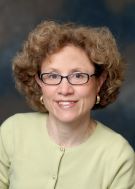 Globally, iron, iodine, folate, vitamin A and zinc are the most deficient micronutrients in the diet. Most susceptible populations for micronutrient deficiencies are children and pregnant women.Two of the most widely used approaches to fighting malnutrition, are food fortification and micronutrient supplementation. Currently,food fortification is the most promising and cost-effective strategy to reduce malnutrition on a global scale. Due to their popularity, dairy products can be the perfect vehicles for iron and zinc fortification programs.Milk and cheese are nutrient dense foods. Cheese is often the recommended meat alternative in school lunch programs and in vegetarian diets. However, milk, cheese and other dairy products are naturally low in iron and zinc. Iron and zinc are challenging micronutrients to add to dairy foods due to their potential to negatively affect their composition and organoleptic properties. Iron and zinc can further be challenging nutrients to add to milk and dairy foods due to their potential to displace other divalent cations in the milk systems.The goal of fortification is to increase nutritional content in a food product, without compromising other nutrients, and desirable sensory attributes. This project is focused on iron and zinc fortification of dairy foods;investigating the effect of microencapsulation technologies on product composition and quality, and sensory attributes. Selection of the fortificant chemical compostion, particle size, levels used, and the point addition during processing are all important considerations when fortifying dairy foods, and will be investigated. Iron and zinc fortification may be a suitable way to enrich foods that are deficient in these nutrients.
Globally, iron, iodine, folate, vitamin A and zinc are the most deficient micronutrients in the diet. Most susceptible populations for micronutrient deficiencies are children and pregnant women.Two of the most widely used approaches to fighting malnutrition, are food fortification and micronutrient supplementation. Currently,food fortification is the most promising and cost-effective strategy to reduce malnutrition on a global scale. Due to their popularity, dairy products can be the perfect vehicles for iron and zinc fortification programs.Milk and cheese are nutrient dense foods. Cheese is often the recommended meat alternative in school lunch programs and in vegetarian diets. However, milk, cheese and other dairy products are naturally low in iron and zinc. Iron and zinc are challenging micronutrients to add to dairy foods due to their potential to negatively affect their composition and organoleptic properties. Iron and zinc can further be challenging nutrients to add to milk and dairy foods due to their potential to displace other divalent cations in the milk systems.The goal of fortification is to increase nutritional content in a food product, without compromising other nutrients, and desirable sensory attributes. This project is focused on iron and zinc fortification of dairy foods;investigating the effect of microencapsulation technologies on product composition and quality, and sensory attributes. Selection of the fortificant chemical compostion, particle size, levels used, and the point addition during processing are all important considerations when fortifying dairy foods, and will be investigated. Iron and zinc fortification may be a suitable way to enrich foods that are deficient in these nutrients.
The Alliance for African Partnership (AAP) established its African Futures Research Leadership Program in Fall 2019. The competitive visiting scholar program will target early career women researchers from the nine AAP member institutions to be jointly supervised by faculty members from MSU and their home institution in research for impact, writing of scholarly and/or policy publications, dissemination of research results and grant proposals. Early career researchers will also participate in a structured academic advancement program while building bridges and lasting connections with MSU and across their cohort. They will also participate in the Future Africa Research Leadership Program at the University of Pretoria, which will provide them with training in the areas of thought leadership, team development, research development, engagement and collaboration, while building south-south collaboration with other African researchers. The home institution mentor will visit MSU for one week of collaboration discussions. Towards the end of the program, MSU faculty mentors will spend one week at the early career researcher’s home institution to continue research collaboration with the researcher and their African co-mentor.